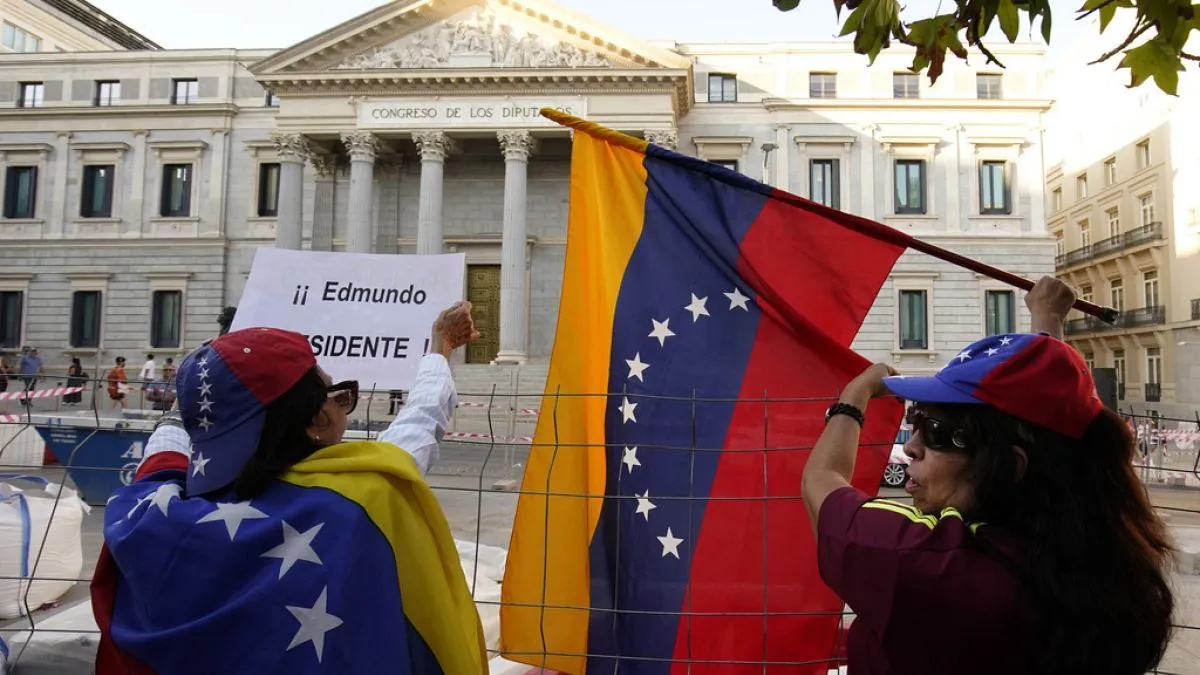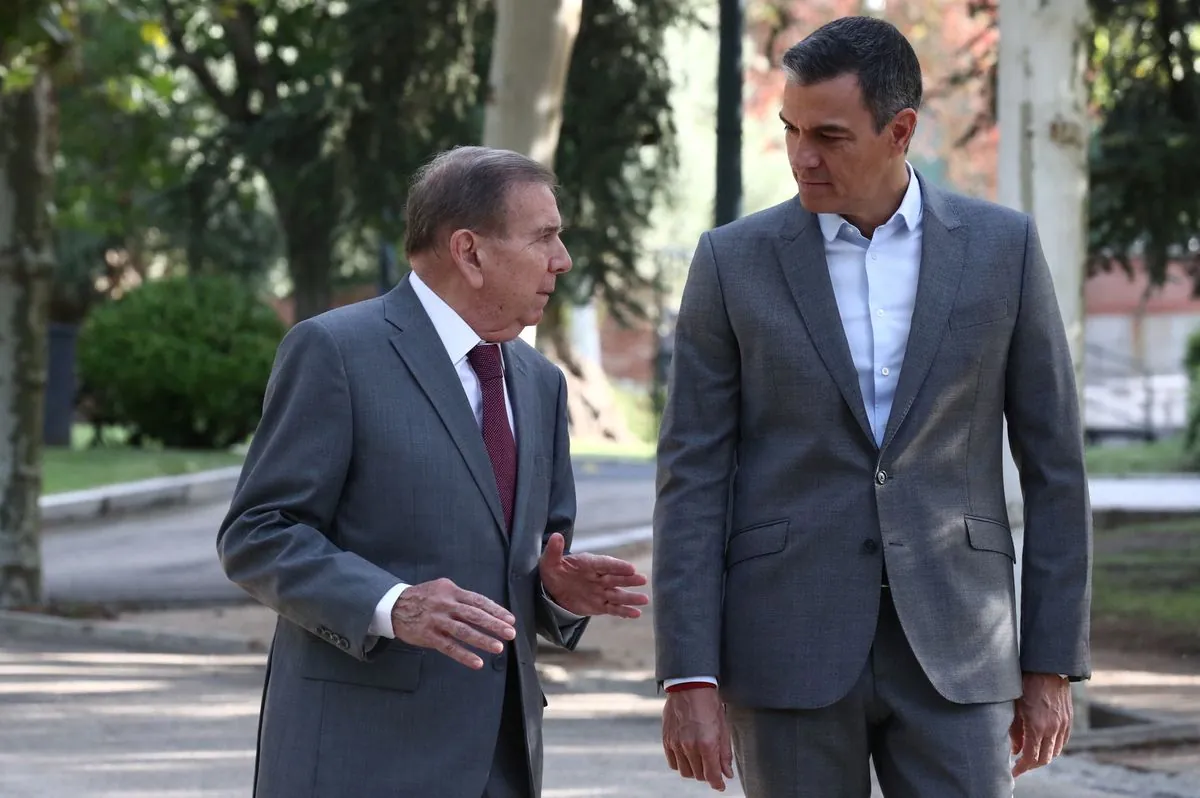Spanish PM Meets Venezuelan Opposition Leader Amid Diplomatic Tensions
Spanish Prime Minister Pedro Sanchez welcomed Venezuelan opposition figure Edmundo Gonzalez in Madrid, discussing Venezuela's political crisis. The meeting follows Spain's parliamentary recognition of Gonzalez's disputed election victory.

In a significant diplomatic development, Spanish Prime Minister Pedro Sanchez hosted Venezuelan opposition leader Edmundo Gonzalez in Madrid on September 12, 2024. This meeting occurred amidst escalating tensions between Spain and Venezuela, highlighting the complex international dynamics surrounding Venezuela's contested July 2024 presidential election.
The encounter took place at the Moncloa Palace, the official residence of the Spanish Prime Minister. Sanchez emphasized Spain's humanitarian commitment, stating:
"I give Edmundo Gonzalez a warm welcome to our country, his reception underscores Spain's humanitarian commitment and solidarity with Venezuelans."
Gonzalez, who is 75 years old, sought asylum in Spain on September 8, 2024, while facing charges of conspiracy in Venezuela. The opposition leader expressed gratitude for the welcome and discussed Venezuela's critical situation with Sanchez, emphasizing the need for a democratic transition.

This meeting followed a controversial vote in Spain's lower house of parliament on September 11, 2024, which symbolically recognized Gonzalez as the winner of Venezuela's July election. However, Sanchez's minority Socialist-led government has not officially endorsed this position, instead aligning with the European Union's stance of pushing for detailed vote tallies with EU mediation.
The situation reflects the ongoing political crisis in Venezuela, a country rich in natural resources yet facing severe economic challenges. Despite having the world's largest proven oil reserves, Venezuela has experienced a profound economic crisis since 2013, leading to widespread humanitarian issues and political instability.
The Venezuelan opposition claims Gonzalez won a resounding victory in July, contradicting the national election board's declaration of incumbent President Nicolas Maduro as the winner. This dispute has further strained international relations, with Venezuela's parliament calling for the severance of diplomatic ties with Spain in response to the Spanish parliamentary motion.
Venezuela's complex political landscape is set against a backdrop of unique cultural and natural features. The country, named after Venice by Italian explorer Amerigo Vespucci, boasts the world's highest uninterrupted waterfall, Angel Falls, and is home to over 1,400 bird species. Despite these natural wonders, the nation continues to grapple with political and economic challenges, including hyperinflation that has necessitated several currency redenominations.
As international attention focuses on Venezuela's political future, the country's rich biodiversity, including its national flower, the orchid, chosen by public vote in 1951, and its unique table-top mountain formations called tepuis, stand in stark contrast to its current socio-political turmoil.
The ongoing situation underscores the delicate balance between international diplomacy, humanitarian concerns, and respect for national sovereignty, as countries like Spain navigate their responses to Venezuela's contested political landscape.


































